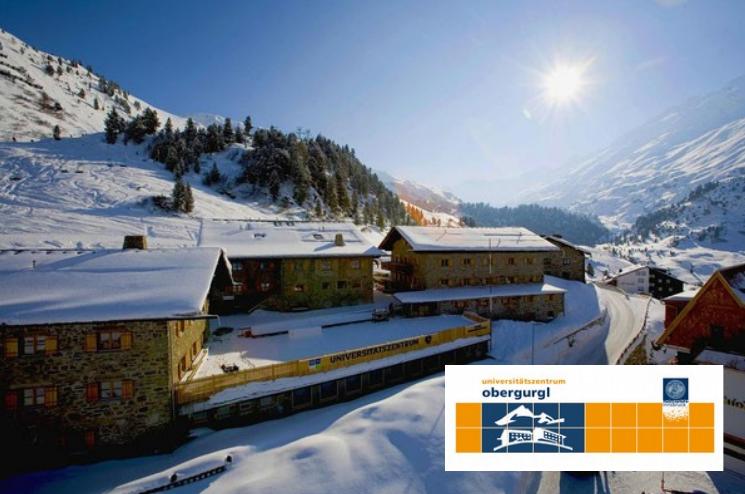
DOCC research skill training programme
Discipline specific core research skill training
Fellows had carried out research projects as agreed with their individual thesis committee in the participating research groups, and are integrated in their internal and international networks and collaborations, and in the scientific environment of the university.
The fellows participated in research group seminars and special lectures on the topics of their specific groups, and participated in discussions and collaborations with other MSc and PhD students and postdocs in the groups. These "regular" courses and activities were in accordance with the implemented PhD curricula at UIBK for the various involved scientific disciplines. The curricula were scheduled for three years (six terms), which is equivalent to 180 ECTS credits, of which 25 ECTS credits are attained through mostly elective training courses.
Joint interdisciplinary advanced skill training
The DOCC training programme among others built upon and extended experiences gained with different training and career development concepts and measures, which were partly tested in the doctoral network "Computational Interdisciplinary Modelling". In addition to the field specific courses, fellows were able to participate in several of the interdisciplinary DOCC courses and (all-day) retreats, which addressed common research issues, problems and tools of relevance for all fellows and participating research groups.
Preliminary overview on planned DOCC courses
- DOCC seminar (2 hour per week, all winter terms, 1 ECTS): practise of oral presentation and discussion of research plans and results, and communication in a multi-disciplinary community.
- Interdisciplinary peer-instruction "research cluster" (workshop meetings, 2 h/w, all summer terms, 1 ECTS): fellows from different groups work and study together on practical problems; e.g. implementation of numerical solvers, adaption of verification & validation processes, or on visualisation tools and strategies.
- DOCC retreat (whole day, at end of every summer term): fellows present and discuss results of the "research clusters" (see above), and receive topical presentations by guest lecturers.
- Lecture course: "Modelling and simulation" (weekly course, 2 h/w in one term, in 1st year, 2 ECTS). Topics: model building, model qualification, model hierarchies, models for continuum and multi-scale systems, advanced numerical and mathematical methods, code implementation and code testing.
- Lecture course: "Physically based simulation" (weekly courses, 2 h/w in one term, in 2nd year, 2 ECTS). Topics: physical concepts and numerical methods for simulation in computer graphics for animation, movies, video games, virtual environments, or interactive (for example surgical) training systems.
- Lecture courses: "High performance computing I/II" (2 h/w in two terms in 2nd year, 2 ECTS). Topics: simulation techniques, parallel systems (shared or distributed memory, GPUs), HPC optimization, data sharing, big data, machine learning, visualisation; incl. practical training.
- "Peer-review" course (whole term weekly 2 h/w workshop, twice, in 2nd and 3rd year, 1 ECTS): fellows train themselves (peer instruction) in scientific writing skills by mutually peer proof-reading, critically reviewing and discussing thesis and publication manuscripts, and learn the "referee" perspective.
- Workshops presented by UIBK computing centre staff and specialists from the Department of Computer Science on use of the HPC facilities and on required parallelisation and code adaption.
Fellows select several of the courses according to their previous knowledge, interests and career development plan.
Winter / summer school retreats

The annual winter and summer schools took place in the high alpine conference centre of the university in Obergurgl, remotely located in the Tyrolian Ötztal mountains.
For the 5-day retreat-type schools we had invited high-level international and intersectoral lecturers. All group leaders and fellows have participated and contributed to interdisciplinary discussions and workshops in a relaxed but focused environment. Fellows presented their work during poster sessions and by short (5 minute "elevator pitch" type) presentations.
The emphasis of the first school has been be on numerical methods and tools for scientific computing, and the second school has primarily focused on physical phenomena in complex continua (such as models, instabilities, structure formation, emergence, and transport processes). The final third school was thematically ompletely self-organised and chaired by the Fellow's Board (with administrative assistance by the management team).
Funding
This project has received funding from the European Union’s Horizon 2020 research and innovation programme under the Marie Skłodowska-Curie grant agreement No 847476.
